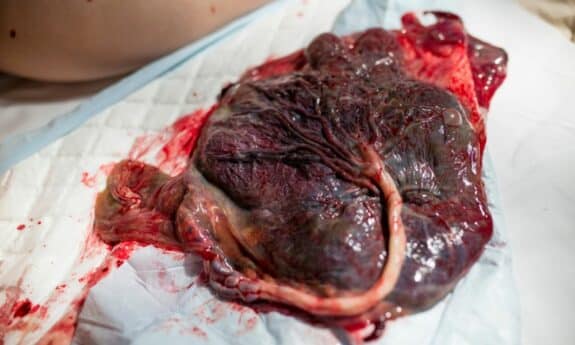In 2002, Anne Swanson experienced postpartum depression after giving birth to her first child. Determined to avoid going through that again, she wanted to ingest her placenta after giving birth to her daughter, Maxanne, three weeks ago. However, Sunrise Hospital and Medical Center refused to release the placenta to her. Swanson had planned to have it dried, ground into a powder, and put into capsules. The theory is that the placenta contains excess hormones that can help replenish depleted hormones and alleviate postpartum depression.
Now, Swanson is waiting to hear from Sunrise officials on whether they will destroy the placenta. She has sought legal assistance to determine her rights and has requested that the placenta not be disposed of until a decision is made. Originally planning a homebirth, she was hospitalized due to complications. Despite voicing her wishes to the nurse, the hospital staff did not release the placenta.
Sunrise officials cited patient privacy laws and the potential for disease transmission as reasons for not releasing the placenta. However, Swanson argues that she does not have HIV or hepatitis and would not request the placenta if she did. Hawaii is the only state that allows hospitals to release placentas for spiritual reasons, unless there is a positive HIV test.
The placenta is a temporary organ that transfers oxygen and nutrients from the mother to the fetus during pregnancy. It is expelled during childbirth. Postpartum depression is believed to be caused by a sudden decrease in hormone levels. The excess hormones that build up in the placenta during pregnancy could potentially prevent postpartum depression. Although postpartum depression is traditionally treated with therapy or antidepressants, the practice of consuming the placenta after birth, mainly in pill form, is gaining popularity as an alternative.
{CSTOCK}







